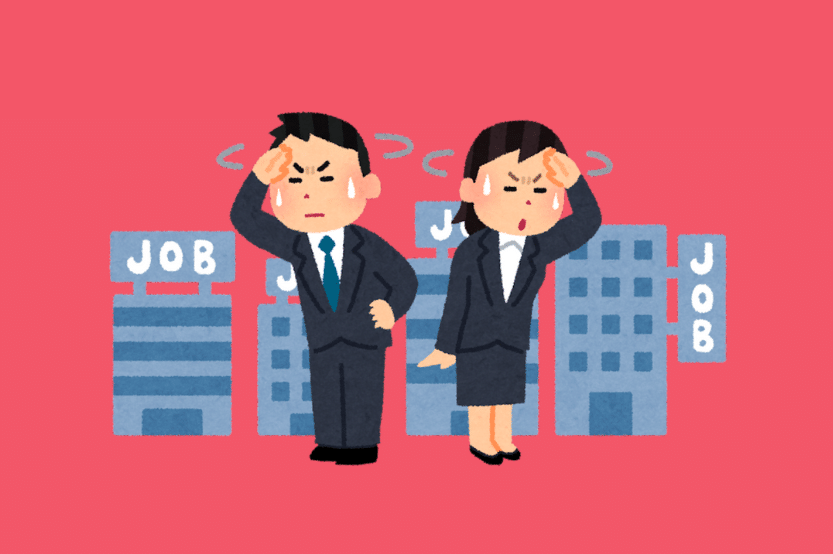Deciding when to leave a job can be clear-cut for some, while for others, it might take time to recognize the signs indicating it’s time for a change. Staying in a role or environment that no longer serves your career growth or well-being can hold you back. Here’s an in-depth look at the warning signs and what you should consider before making your next move:
1. Your Work Culture Is Toxic
A toxic work culture can drain your energy and affect your mental health. Whether it’s a group of employees creating negativity or an overarching culture of distrust and dysfunction, spending five days a week in such an environment isn’t sustainable. Don’t wait for others to leave or hope the culture will change. Seek out an organization where the culture aligns with your values and where you feel appreciated and supported.
What to look for:
- Persistent negativity or workplace gossip.
- Lack of collaboration and support from colleagues.
- Poor leadership and lack of transparency.
Tip: Take a moment to list three aspects of your ideal work culture. How does your current workplace measure up?

2. The Company Is Struggling Financially
Signs of a company’s financial instability can manifest in many ways—missed payrolls, layoffs, or declining revenue. Working for a failing company can jeopardize your career and financial security. Don’t wait for a pink slip; be proactive and start exploring other opportunities as soon as you notice red flags.
Signs to watch out for:
- Frequent budget cuts or restructuring.
- Reduced investment in new projects.
- Poor communication from leadership about the company’s direction.
Pro Tip: Stay updated on your industry trends and have a financial buffer ready in case of sudden job loss.
3. You’re Overworked and Burned Out
If work has taken over your life, leaving no time for personal fulfillment, it’s time to reassess. While all jobs can have demanding periods, a perpetual state of burnout is unhealthy and unsustainable. Your job should allow you to thrive both professionally and personally.
Signs of burnout:
- Feeling physically and emotionally drained.
- Lack of motivation to perform your duties.
- Increased irritability or stress.
Tip: Reflect on your work-life balance by tracking your daily activities for a week. How much time do you spend on personal care or hobbies?
4. Strained Relationship with Your Manager
The saying, “You don’t leave a job; you leave a bad boss,” holds true. A toxic or unsupportive manager can significantly hinder your career growth and job satisfaction. If your relationship with your manager negatively impacts your performance or well-being, it may be time to look for a healthier dynamic elsewhere.
What to consider:
- Does your manager provide constructive feedback?
- Are they supportive of your career aspirations?
- Is communication open and respectful?
Action Step: Try scheduling a candid discussion with your manager to address issues before making a decision to leave.
5. Your Talent Isn’t Valued, and You’re Underpaid

If you’re consistently contributing beyond expectations but aren’t recognized or compensated accordingly, it’s a clear signal to seek opportunities where your skills will be appreciated. Staying underpaid not only affects your financial well-being but can also impact your long-term career trajectory.
Questions to ask yourself:
- Are you aware of the market rate for your role?
- Have you discussed a raise or promotion with your manager?
- Are your contributions acknowledged?
Pro Tip: Research industry salary benchmarks and use them to advocate for fair compensation during your next negotiation.
6. Increased Responsibility Without Increased Pay
Taking on more responsibilities can be a great way to grow, but prolonged periods without additional compensation or recognition are red flags. If your workload continues to grow without corresponding rewards, it’s time to reconsider your options.
What to evaluate:
- How long have you been taking on extra responsibilities?
- Have you received any acknowledgment or support for the additional workload?
Tip: Document your achievements and expanded responsibilities to present during performance reviews or job interviews.
7. You’re Not Learning or Growing
Stagnation can be detrimental to your career. If your role doesn’t offer opportunities to develop new skills or take on exciting challenges, your growth—both professional and financial—may plateau.
Indicators of stagnation:
- Lack of new projects or skill-building opportunities.
- No clear path for advancement within the company.
- Feeling unchallenged or unmotivated.
Action Plan: Consider enrolling in online courses or certifications to bridge gaps in your skills and make yourself more marketable.
Final Thoughts
The decision to leave a job is never easy, but recognizing these signs early can help you take control of your career path. While it’s often worth having open and honest conversations with your employer to address concerns, sometimes the best move is to seek new opportunities that align better with your goals and values.
Remember: Every career move is an opportunity to grow. Don’t let fear or hesitation hold you back from finding professional happiness and fulfillment.
If you’re ready to take the leap but need guidance on resume building, interview prep, or finding the right fit, reach out to career experts or platforms that can support you through the process.











